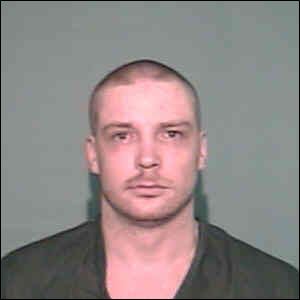
Death row inmate banks on new British citizenship
8/10/2003The awarding of British citizenship to Ohio death row inmate Kenny Richey has given hope to his many supporters who believe he is innocent of the 1986 arson death of a 2-year-old Columbus Grove, Ohio, girl.
“It can help him because now the United Kingdom government can intervene with the state of Ohio and ensure that a U.K. citizen hopefully receives fairness,” said Karen Torley, of Scotland, who started a campaign in 1995 to free Richey.
Richey was born in the Netherlands to a Scottish mother and American father, but grew up in Edinburgh. He moved to Putnam County at age 18 in 1982 to be with his father, who was divorced from his mother.
Richey, on death row 16 years, is awaiting a decision by the U.S. 6th Circuit Court of Appeals in Cincinnati, which heard his case in May. The decision is expected later this year.
Richey, 39, was convicted of setting a fire that caused the death of Cynthia Collins. The child was asleep inside an apartment that a court ruled Richey set ablaze in an attempt to murder his former girlfriend and her lover, who were sleeping in the apartment below.
The controversial case, which was the subject of a 1998 Blade investigation, has attracted worldwide attention.
The A&E cable network show American Justice will feature a program on the Richey case this fall, producers of the show said.
Pope John Paul II, the former archbishop of Canterbury, and several well-known actors have made pleas on Richey's behalf.
The British press has stepped up its coverage of the case in recent weeks since Richey was awarded his citizenship, which culminated a lengthy effort by a team of attorneys.
Under the country's nationality law prior to 1983, applicants were only awarded citizenship if their fathers were British. Richey's attorneys were successful in getting the law amended to include the offspring of British mothers. Richey was the first person given citizenship under the amended law.
“Kenny persistently had been told that he could not be a British national by U.K. authorities. However, the lawyers refused to accept this position. They had in mind that that court action could have been brought on the issue of discrimination were the act not amended,” Richey attorney Yasmin Waljee said.
The ruling is one of the few victories Richey has achieved in his lengthy campaign for freedom. The hearing in May culminated a two-year effort by Richey's defense to overturn a decision against him by a federal judge in Cleveland in 2001.

Richey: He was awarded British citizen status recently.
The state continues to push for Richey's execution. In a statement released earlier this summer, the attorney general's office said, “At least six courts over 17 years have examined the Kenny Richey case and agreed he set the fire that resulted in the death of 2-year-old Cynthia Collins. The state continues to stand behind the valid and fair conviction of Mr. Richey.”
But inconsistencies and questionable findings in its case have raised doubt about the original verdict, bolstering the defense's appellate case, Richey's attorneys believe.
The attorney at his trial, public defender William Kluge of Lima, Ohio, admitted to making mistakes in his handling of the case. In particular, his expert arson witness ended up testifying for the prosecution.
Ken Parsigian, whose firm has handled Richey's numerous appeals, has long maintained that the state's arson investigators botched the case and that the fire was not set intentionally.
Aiding that viewpoint has been the sworn statement of Anthony Cafe of T.C. Forensic in Sydney, who said accelerants could not have been used to start the fire, as the state contends.
Mr. Cafe's testimony carries particular weight, Richey's attorneys and supporters believe, because U.S. District Judge Patricia Gaughan of Cleveland cited Mr. Cafe's writings in her 2001 opinion against Richey.
According to Mr. Cafe, Judge Gaughan erred in her interpretation of his work.
“[She] miscited and misunderstood my published articles. I believe that Kenny Richey was convicted on unsound forensic scientific opinion,” he said in his testimony.
Also bolstering their appeal, Richey's attorneys believe, is Judge Gaughan's acknowledgment of new scientific evidence in the Richey case that “certainly undermine[s] the state's arson evidence,” she wrote.
Richey received the death penalty because the court believed he deliberately disconnected the apartment's smoke detector.
However, Peggy Villearreal, a friend of Cynthia Collins' mother, Hope Collins, told The Blade during its investigation that she and Mrs. Collins regularly unhooked the smoke detector because it would activate while they cooked.
In Mr. Cafe's opinion, the fire was so hot it likely caused the smoke detector to become detached from the ceiling. Judge Gaughan said in her decision that she did not believe Richey disconnected the smoke detector.
As the fire burned out of control, Richey had to be restrained by sheriff's deputies, who prevented him from going into the apartment after Cynthia. Two weeks before his trial began, he declined a plea bargain that might have resulted in his release from prison in 1998.
Should the court in Cincinnati rule against Richey, further appeals options will be limited. Ms. Torley believes things could have been different had he had his British citizenship sooner.
“The U.K. government would have had to intervene and ensure he had a fair trial. That did not happen,” she said.